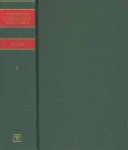James Hutton (1726-97), often described as the "father of geology", was one of the most important and influential figures of the 18th century. Best known as the author of "Theory of the Earth" (1795) and largely remembered for his radical contributions to earth sciences, he was also concerned with investigating a wide range of natural and human phenomena, including agriculture, botany, physics and chemistry, the origin of language, the nature of government, and philosophy. His "Investigation of the Principles of Knowledge" (1794), published towards the end of his life, was Hutton's third and longest book. A wide-ranging discussion of human knowledge written in response to the works of Hume, Locke and Berkeley, Hutton here expounds a metaphysical system in which an analysis of causation is central. Beginning with the basis of knowledge in sensation, perception, passion and action, he moves on to a discussion of the nature of ideas and reason, the different kinds of proof, power and matter. His conclusion is theistic but not Christian, and stresses that man must not allow religion to be corrupted by those ignorant of science and philosophy.
The primary texts are now very rare and access to his writings is usually through secondary discussions of his thought by popularizers such as Charles Lyell and John Playfair. As a result his thought is often misunderstood. This original text provides an opportunity to consider Hutton's contributions to the social sciences and humanities.
- ISBN10 1855068117
- ISBN13 9781855068117
- Publish Date 15 October 1999
- Publish Status Out of Print
- Out of Print 30 June 2005
- Publish Country GB
- Publisher Bloomsbury Publishing PLC
- Imprint Thoemmes Continuum
- Edition Facsimile of 1794 ed
- Format Hardcover
- Pages 2250
- Language English
